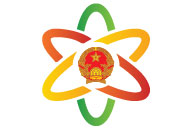
News
Discussion 'Tax policies and customs procedures when implementing CPTPP
Summary
Updated on : 05-06-2019

10 foreign associations operating in Vietnam and more than 200 domestic enterprises, FDI enterprises and press agencies attended the seminar.
The Comprehensive Partnership and Trans-Pacific Partnership Agreement (CPTPP) with 11 member countries, was officially implemented in Vietnam from March 1, 2019. This is an opportunity for the business community in the whole country and Ho Chi Minh City in particular to promote the development of production, import and export of goods, and promote the economic development of the country.
Consequently, Vietnam's GDP may increase by 1.32%; export turnover may increase 4.04% and import turnover may increase by 3.8%. The CPTPP countries are committed to eliminating between 97% and 100% of import tariff lines for goods originating from Vietnam, according to the schedule and the commitment of each country.
This is an opportunity for Vietnamese enterprises to promote the development of production, business, import and export of goods and boost the economic development of the country. Simultaneously, the Government will issue a Decree on the Preferential Export Tariff List and the Special Preferential Import Tariff List of Vietnam to implement within the CPTPP Agreement for the period of 2019-2022.
Speaking at the seminar, Deputy Director General of the General Department of Vietnam Customs, Nguyen Duong Thai, emphasized that through the implementation of CPTPP, the view of the Customs sector is to facilitate businesses in the process of customs procedures. To continue implementing administrative reform, modernize customs, improve the business environment and improve national competitiveness in 2019 and orientation to 2021 at the request of the Prime Minister.
Vietnam has recently integrated more widely with the world economy through signing bilateral and multilateral free trade agreements (FTAs).
The Ministry of Finance is submitting to the Government a Decree on the Preferential Export Tariff List and the Special Preferential Import Tariff List of Vietnam for Implementation in the CPTPP Agreement in the period 2019-2022. The General Department of Vietnam Customs is finalizing and submitting to the Ministry of Finance for amendments and supplements to Circular 38/2018/TT-BTC on inspection and identification of goods origin, including specific regulations on inspection and determining origin of goods under the CPTPP Agreement (expected to be completed in June 2019).
Mr. Thai also noted some notable issues when implementing this agreement from a customs perspective that is eliminating and cutting tariffs; CPTPP inherits rules of origin and advanced origin procedures from the Trans-Pacific Partnership (TPP); simplified procedures for certifying origin and the benefits of enterprises when paying taxes through banks when implementing CPTPP.
At the seminar, experts have exchanged views on tax policies, customs procedures and rules of origin of goods in CPTPP. Mr. Vu Nhu Thang, Director of International Cooperation Department (Ministry of Finance), gave a brief introduction on Vietnam's commitment on import and export taxes in CPTPP. Vietnam will aim to eliminate nearly 100% of tariff lines within 5-15 years of the Agreement coming into effect.
Mr. Luong Hoang Thai, Director of Multilateral Trade Policy Department, Ministry of Industry and Trade, discussed the opportunities and challenges for import – export goods of Vietnam. In particular, Mr. Thai noted the issue regarding self-certification, as committed in CPTPP, importers, exporters and producers are able to self-certificate goods origin.
Mr. Tran Van Cong, Deputy Director of Agro Processing and Market Development Department, (Ministry of Agriculture and Rural Development) talked about the potential of boosting agricultural exports to CPTPP signatories as well as what enterprises need to do to take those opportunities in the future.
Mr. Nguyen Huu Nghiep, Deputy Director of HCM City Customs Department, also discussed the commitments of HCM City Customs Department in disseminating and implementing issues relating to CPTPP in order to facilitate the business community to implement customs procedures and pay tax. Mrs. Dao Thu Huong, Deputy Director of Import-Export Duty Department, (General Department of Vietnam Customs) presented Draft Decrees on Preferential Import-Export Tariff List and Special Preferential Import Tariff List of Vietnam for implementing within CPTPP for the period 2019-2022 as well as issues which enterprises need to pay attention to.
Source: Customs News
Most Recent News
| Title | Category | Created On |
|---|---|---|
| Videos: Việt Nam mong muốn thúc đẩy hợp tác hải quan ASEAN | News | 2024-04-12 06:51:54 |
| 2 trường hợp cấp lại Giấy phép thành lập Văn phòng đại diện của tổ chức xúc tiến thương mại nước ngoài | News | 2024-02-19 14:34:36 |
| Đơn giản hóa một số thủ tục về kinh doanh vận chuyển hàng không | News | 2024-02-19 14:30:39 |
| Videos: Ngành Hải quan cung cấp 219 dịch vụ công trực tuyến | News | 2024-01-29 06:49:01 |
| Videos: Nỗ lực xây dựng Hải quan Việt Nam chính quy, hiện đại, ngang tầm các nước phát triển | News | 2024-01-25 07:55:03 |
Search All News
|
A Quick Intro |
Search Trade Information
|
|
|
|
|
|
|
|
|
|
|
|
|
|
Feature Information
|
|
|
|
|
|
|
|
|
|
|
Information & Articles
|
|
|
|
|
|
|
|
|
|
|
|
Contact Us! If you cannot find what you require in this website please feel free to contact us. Click here to send us a message >>>
|